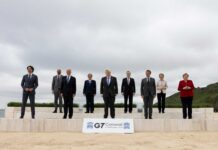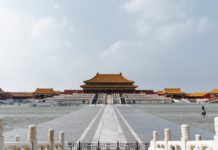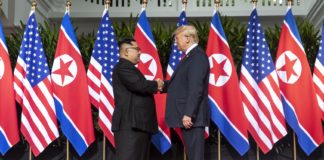A lot has been written in the media about the upcoming summit between Donald Trump and Kim Jong Un, which is scheduled to take place in Singapore on 12 June. Much of the focus of the media is however centred around specific statements or gestures by either side, such as the recent exchange of statements on the issue of denuclearisation and the risk of a premature cancellation of the summit.
To analyse these developments is no doubt very important, but public positions often mask the true underlying interests of the parties to a conflict. It is these that truly matter when it comes to finding the common ground, yet very little is being said about what these may be. The key question is what the US truly wants out of North Korea, and what North Korea truly wants out of the US. In other words, what their interests are and how these differ from their stated positions.
Words and expressions may have very different meanings depending on who and how one approaches them, which is in turn influenced by the perceptions that each party has on each other. This is particularly important in the case of the US and North Korea, where perceptions – more likely misperceptions – are shaped by the lack of direct diplomatic relations and back channels. So when the US and North Korea speak of ‘denuclearisation’ they may actually mean different things.
Put very simplistically, by denuclearisation the US seems to mean the (immediate) complete, verifiable and irreversible dismantling of North Korea’s nuclear programme. But North Korea may be giving the term denuclearisation a different meaning. One for example which recognises North Korea as a nuclear power and which involves a gradual process governed under the terms of an arms control deal which involves other security and economic incentives and reassurances.
Even the US is likely to have interests that can be decoupled from their public demand for immediate denuclearisation. These may take the form of assurances and confidence building measures to ensure the security of its allies in the region, South Korea and Japan. Or the immediate cessation of long-range missile tests that pose an immediate threat to civilians and increase the risk of miscalculation. Or the incorporation of North Korea to the global markets.
North Korea too will have interests that go beyond their stated position to hold nuclear weapons capable of being miniaturised and dropped in enemies’ territory. These may include assurances that the US will not actively pursue regime change, a reduction of the threat posed by trilateral US-SK-Japan military drills, economic assistance or preferential treatment to help Kim Jong Un achieve his goal of improving the economic conditions of his nation. In his case, he seems to have made nuclearisation an indispensable ingredient of economic development.
If one focuses on grand statements and public positions, it is very hard to imagine the parties reaching a satisfactory agreement. But if one looks closer at the parties’ interests, it is not that difficult to find some common and converging aspirations. It is these that the US and North Korean delegations will need to focus on, for it is the reconciliation of interests that matters, not the convergence of opposed positions. This is not to imply that the task is easy; in fact, if they do not try to dissect and mutualise their interests they will surely fail. This is particularly important in this case, where due to expectations not having been appropriately managed, failure could have serious consequences.




























